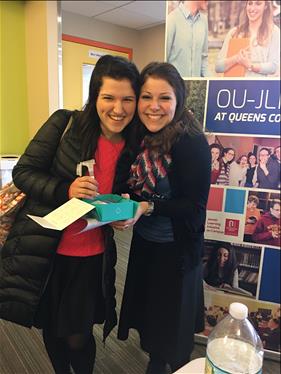Why genetic screening should be a part of your life

What does the Jewish community do when faced with a collective problem or challenge? Well, in an ideal world, we come together in the spirit of unity to overcome whatever is in front of us. While, admittedly, we don’t always respond this way, our community did band together in the 1970s and 1980s when there was a high incidence of babies being born with Tay-Sachs disease.
If you’re not familiar with this disease, you should know it’s devastating. Babies born with this disease do not have the enzyme, hexosaminidase A (Hex-A) which is needed to break down a fatty substance in brain cells. When Hex-A is absent, the fatty substance accumulates and causes severe damage to the nervous system which expresses itself through blindness, deafness, paralysis, and eventually early death, usually by the age of 5. No one should have to endure the suffering caused by this lethal disease.
Hospitals such as Kingsbrook Jewish Medical Center in New York had units dedicated to babies affected with Tay-Sachs because they required round-the-clock care. The Jewish community was facing an epidemic and it was clear that something needed to be done, and fast.
Because Tay-Sachs is a recessive disease, think back to Biology 101 and the good old Punnett square. Both parents must be carriers of the disease in order to put their child at risk to have it. So, being a carrier in and of itself is no big deal, but when two carriers come together each pregnancy has a 25 percent chance of being affected. The only way to know one’s carrier status is to get genetic screening—which is exactly what occurred in the historic first-ever Jewish genetic screenings back in 1971.
In major Jewish metropolitan areas such as Baltimore, New York and California, the community came together to organize on-site screening events. These were performed on college campuses, synagogues and Jewish community centers. By leveraging their connection with the Jewish student body, Hillel was able to promote and encourage students to get screened. (If you’re currently in your 20’s or 30’s, you should ask your parents if and where they were tested—odds are it was at one of these events.)
My parents were married in New York and their rabbi made it mandatory to get tested. Yes, I know, sounds crazy, but that’s what most rabbis required. Back then, it wasn’t the simple saliva test that JScreen uses, but a blood test that took multiple vials. When my dad got tested for Tay-Sachs, they lost his sample! He was not thrilled that he had to go back a second time, but was grateful that he and his future bride, my mom, had the opportunity to undergo screening to make sure they did not unknowingly pass on this disease to their children.
The education and promotion of Tay-Sachs screening worked so well that the incidence of Tay-Sachs among Jews in North America has decreased by more than 90 percent since 1971. Don’t think that this means the disease is eradicated or cured, as it still occurs within the Jewish community, and we find many carriers since 1 in 27 Ashkenazi Jews is a carrier of Tay-Sachs. Tay Sachs babies are also still being born to interfaith couples and non-Jews who are less likely to be screened for the disease.
Today we are tasked with recreating the incredible work of the original Tay-Sachs screening programs. But since so many scientific advancements have occurred since then, we are able to include more than 200 other diseases in our screening panel. JScreen is tirelessly working to ensure access to genetic screening and to debunk the misconceptions that out there such as “I don’t need to do it because my parents got it done,” which is not true because their parents were only screened for a very limited panel. Another statement we often hear is “only one of my parents is Jewish so I wouldn’t be a carrier,” which also not true. Being a carrier of Tay-Sachs disease (and many of the other diseases) is more common in Jews, but is still seen across other ethnicities.
JScreen has recreated the public health initiative of the 1970s and has partnered with Hillels across the country on educating and screening students and staff. Together, we can save lives.
Your campus can partner with us to do just that. Contact [email protected] to take the first step.
Hillary Kener is Director of National Outreach at JScreen. Her parents have two children and live in Florida.